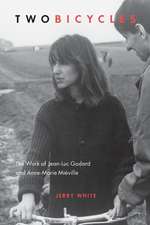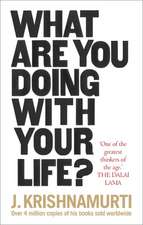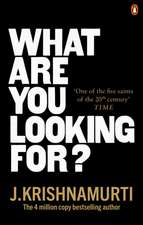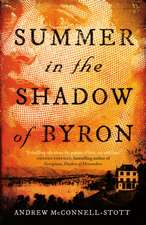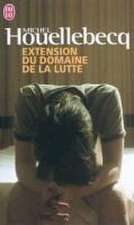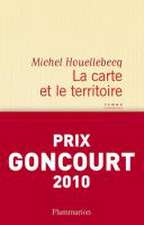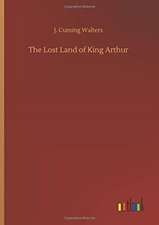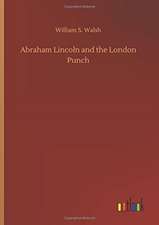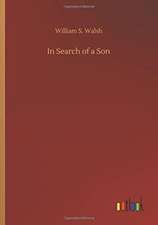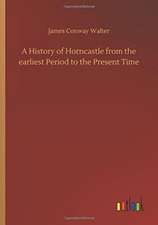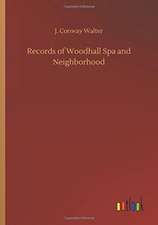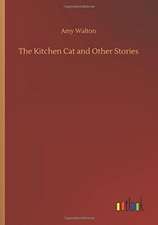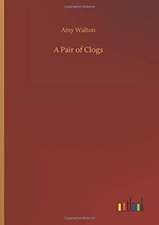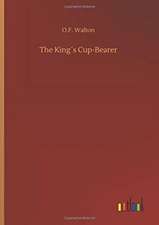Platform
Autor Michel Houellebecqen Limba Engleză Paperback – 30 iun 2004
In his early forties, Michel Renault skims through his days with as little human contact as possible. But following his father’s death he takes a group holiday to Thailand where he meets a travel agent—the shyly compelling Valérie—who begins to bring this half-dead man to life with sex of escalating intensity and audacity. Arcing with dreamlike swiftness from Paris to Pattaya Beach and from sex clubs to a terrorist massacre, Platform is a brilliant, apocalyptic masterpiece by a man who is widely regarded as one of the world’s most original and daring writers.
| Toate formatele și edițiile | Preț | Express |
|---|---|---|
| Paperback (2) | 54.06 lei 23-34 zile | +20.59 lei 7-13 zile |
| Vintage Publishing – 4 sep 2003 | 54.06 lei 23-34 zile | +20.59 lei 7-13 zile |
| VINTAGE BOOKS – 30 iun 2004 | 89.27 lei 3-5 săpt. |
Preț: 89.27 lei
Nou
Puncte Express: 134
Preț estimativ în valută:
17.08€ • 18.61$ • 14.39£
17.08€ • 18.61$ • 14.39£
Carte disponibilă
Livrare economică 02-16 aprilie
Preluare comenzi: 021 569.72.76
Specificații
ISBN-13: 9781400030262
ISBN-10: 1400030269
Pagini: 272
Dimensiuni: 133 x 205 x 15 mm
Greutate: 0.2 kg
Ediția:Vintage Intl.
Editura: VINTAGE BOOKS
ISBN-10: 1400030269
Pagini: 272
Dimensiuni: 133 x 205 x 15 mm
Greutate: 0.2 kg
Ediția:Vintage Intl.
Editura: VINTAGE BOOKS
Notă biografică
Michel Houellebecq’s The Elementary Particles, an international bestseller, won the prestigious Prix Novembre in France as well as the lucrative International IMPAC Dublin Literary Award. He lives in Ireland.
Extras
1
Father died last year. I don’t subscribe to the theory that we only become truly adult when our parents die; we never become truly adult.
As I stood before the old man’s coffin, unpleasant thoughts came to me. He had made the most of life, the old bastard; he was a clever cunt. “You had kids, you fucker,” I said spiritedly. “You shoved your fat cock in my mother’s cunt.” I was a bit tense, I have to admit. It’s not every day you have a death in the family. I’d refused to see the corpse. I’m forty, I’ve already had plenty of opportunity to see corpses. Nowadays, I prefer to avoid them. It was this that had always dissuaded me from getting a pet.
I’m not married, either. I’ve had the opportunity several times, but I never took it. That said, I really love women. It’s always been a bit of a regret, for me, being single. It’s particularly awkward on vacations. People are suspicious of single men on vacation, after they get to a certain age: they assume that they’re selfish, and probably a bit pervy. I can’t say they’re wrong.
After the funeral, I went back to the house where my father lived out his last years. The body had been discovered a week earlier. A little dust had already settled around the furniture and in the corners of the rooms; I noticed a cobweb on the window frame. So time, entropy, all that stuff, was slowly taking the place over. The freezer was empty. The kitchen cupboards mostly contained single-serving Weight Watchers instant meals, tins of flavored protein, and energy bars. I wandered through the rooms nibbling a granola bar. In the boiler room, I rode the exercise bike for a while. My father was over seventy and in much better physical shape than I was. He did an hour of rigorous exercise every day, laps in the pool twice a week. On weekends, he played tennis and went cycling with people his age. I’d met some of them at the funeral. “He coached the lot of us!” a gynecologist exclaimed. “He was ten years older than us, but on a two-kilometer hill, he’d be a whole minute ahead.” Father, Father, I said to myself, how great was your vanity! To the left of my field of vision I could make out a weightlifting bench, barbells. I quickly visualized a moron in shorts—his face wrinkled, but otherwise very like mine—building up his pectorals with hopeless vigor. Father, I said to myself, Father, you have built your house upon sand. I was still pedaling but I was starting to feel breathless—my thighs already ached a little, though I was only on level 1. Thinking back to the ceremony, I was aware that I had made an excellent general impression. I’m always clean-shaven, my shoulders are narrow, and when I developed a bald spot at about the age of thirty, I decided to cut my hair very short. I usually wear a gray suit and sober ties, and I don’t look particularly cheerful. With my short hair, my lightweight glasses, and my sul- len expression, my head bowed a little to listen to a Christian funeral-hymn mix,* I felt perfectly at ease with the situation—much more at ease than I would have been at a wedding, for example. Funerals, clearly, were my thing. I stopped pedaling, coughed gently. Night was falling quickly over the surrounding meadows. Near the concrete structure that housed the boiler, you could make out a brownish stain that had been poorly cleaned. It was there that my father had been discovered, his skull shattered, wearing shorts and an “I ™ New York” sweatshirt. He had been dead for three days, according to the coroner. There was the possibility, very remote, that what happened was an accident, he could have slipped in a puddle of oil or something. That said, the floor of the room was completely dry, and the skull had been broken in several places. Some of the brain had even spilled onto the floor. In all probability, what we were dealing with was murder. Captain Chaumont of the Cherbourg police was supposed to come over to see me that evening.
Back in the living room, I turned on the television, a thirty-two-inch Sony widescreen with surround sound and an integrated DVD player. There was an episode of Xena: Warrior Princess on TF1, one of my favorite series. Two very muscular women wearing metallic bras and miniskirts made of animal hide were challenging each other with their sabers. “Your reign has gone on too long, Tagrathâ!” cried the brunette. “I am Xena, warrior of the Western Plains!” There was a knock at the door; I turned the sound down.
Outside, it was dark. The wind gently shook the branches dripping with rain. A girl of about twenty-five who looked North African was standing in the doorway. “I’m Aïcha,” she said. “I cleaned for Monsieur Renault twice a week. I’ve just come to get my things.”
“Well . . . ,” I said, “. . . well.” I managed a gesture that was intended to be welcoming. She came in and glanced quickly at the television screen. The two warriors were now wrestling right next to a volcano; I suppose the spectacle had its stimulating side, for a certain kind of lesbian. “I don’t want to disturb you,” said Aïcha. “I’ll only be five minutes.”
“You’re not disturbing me,” I said. “In fact, nothing disturbs me.” She nodded her head as though she understood, her eyes lingered on my face; she was probably gauging my physical resemblance to my father, possibly inferring a degree of moral resemblance. After studying me for a few moments, she turned and climbed the stairs that led to the bedrooms. “Take your time,” I said, my voice barely audible. “Take all the time you need.” She didn’t answer, didn’t pause in her ascent; she had probably not even heard me. I sat down on the sofa again, exhausted by the confrontation. I should have offered to take her coat. That’s what you usually do, offer to take someone’s coat. I realized that the room was terribly cold—a damp, penetrating cold, the cold of a cellar. I didn’t know how to light the boiler, I had no wish to try, now my father was dead and I had intended to leave right away. I turned over to FR3 just in time to catch the last part of Questions pour un champion. At the moment when Nadège from Val-Fourré told Julien Lepers that she was going to risk her title for the third time, Aïcha appeared on the stairs, a small travel bag on her shoulder. I turned off the television and walked quickly toward her. “I’ve always admired Julien Lepers,” I told her. “Even if he doesn’t know the actual town or village the contestant is from, he always manages to say something about the department or the region; he always knows a bit about the climate and the local scenery. Above all, he understands life. The contestants are human beings to him, he understands their problems and their joys. Nothing of what constitutes human reality for the contestants is entirely strange or intimidating to him. Whoever the contestant is, he manages to get them to talk about their work, their family, their hobbies—everything, in fact, that in their eyes goes to make up a life. The contestants are often members of a brass band or a choral society, they’re involved in organizing the local fair, or they devote themselves to some charitable cause. Their children are often there in the studio. You generally get the impression from the program that these people are happy, and you feel better, happier yourself. Don’t you think?”
She looked at me unsmilingly. Her hair was in a chignon, she wore little makeup, her clothes were pretty drab—a serious girl. She hesitated for a moment before saying in a low voice, a little hoarse with shyness: “I was very fond of your father.” I couldn’t think of anything to say. It struck me as bizarre, but just about possible. The old man must have had stories to tell: he’d traveled in Colombia, Kenya, or I don’t know where; he’d had the opportunity to watch rhinoceros through binoculars. Every time we met, he limited himself to making fun of the fact that I was a civil servant, about the job security that went with it. “Got yourself a cushy little number, there,” he would say, making no attempt to hide his scorn. Families are always a bit difficult. “I’m studying nursing,” Aïcha went on, “but since I stopped living with my parents I have had to work as a cleaner.” I racked my brains to think of an appropriate response: was I supposed to ask how expensive rents were in Cherbourg? I finally opted for an “I see,” into which I tried to introduce a certain worldly wisdom. This seemed to satisfy her and she walked to the door. I pressed my face to the glass to watch her Volkswagen Polo do a U-turn in the muddy track. FR3 was showing some rustic made-for-TV movie set in the nineteenth century, starring Tchéky Karyo as a sharecropper. Between piano lessons, the daughter of the landowner—he was played by Jean-Pierre Marielle—accorded the handsome peasant certain liberties. Their clinches took place in a stable. I dozed off just as Tchéky Karyo was energetically ripping off her organza panties. The last thing I remember was a close-up of a small litter of pigs.
* This word and all others marked with an asterisk appear in English in the original French edition.
Father died last year. I don’t subscribe to the theory that we only become truly adult when our parents die; we never become truly adult.
As I stood before the old man’s coffin, unpleasant thoughts came to me. He had made the most of life, the old bastard; he was a clever cunt. “You had kids, you fucker,” I said spiritedly. “You shoved your fat cock in my mother’s cunt.” I was a bit tense, I have to admit. It’s not every day you have a death in the family. I’d refused to see the corpse. I’m forty, I’ve already had plenty of opportunity to see corpses. Nowadays, I prefer to avoid them. It was this that had always dissuaded me from getting a pet.
I’m not married, either. I’ve had the opportunity several times, but I never took it. That said, I really love women. It’s always been a bit of a regret, for me, being single. It’s particularly awkward on vacations. People are suspicious of single men on vacation, after they get to a certain age: they assume that they’re selfish, and probably a bit pervy. I can’t say they’re wrong.
After the funeral, I went back to the house where my father lived out his last years. The body had been discovered a week earlier. A little dust had already settled around the furniture and in the corners of the rooms; I noticed a cobweb on the window frame. So time, entropy, all that stuff, was slowly taking the place over. The freezer was empty. The kitchen cupboards mostly contained single-serving Weight Watchers instant meals, tins of flavored protein, and energy bars. I wandered through the rooms nibbling a granola bar. In the boiler room, I rode the exercise bike for a while. My father was over seventy and in much better physical shape than I was. He did an hour of rigorous exercise every day, laps in the pool twice a week. On weekends, he played tennis and went cycling with people his age. I’d met some of them at the funeral. “He coached the lot of us!” a gynecologist exclaimed. “He was ten years older than us, but on a two-kilometer hill, he’d be a whole minute ahead.” Father, Father, I said to myself, how great was your vanity! To the left of my field of vision I could make out a weightlifting bench, barbells. I quickly visualized a moron in shorts—his face wrinkled, but otherwise very like mine—building up his pectorals with hopeless vigor. Father, I said to myself, Father, you have built your house upon sand. I was still pedaling but I was starting to feel breathless—my thighs already ached a little, though I was only on level 1. Thinking back to the ceremony, I was aware that I had made an excellent general impression. I’m always clean-shaven, my shoulders are narrow, and when I developed a bald spot at about the age of thirty, I decided to cut my hair very short. I usually wear a gray suit and sober ties, and I don’t look particularly cheerful. With my short hair, my lightweight glasses, and my sul- len expression, my head bowed a little to listen to a Christian funeral-hymn mix,* I felt perfectly at ease with the situation—much more at ease than I would have been at a wedding, for example. Funerals, clearly, were my thing. I stopped pedaling, coughed gently. Night was falling quickly over the surrounding meadows. Near the concrete structure that housed the boiler, you could make out a brownish stain that had been poorly cleaned. It was there that my father had been discovered, his skull shattered, wearing shorts and an “I ™ New York” sweatshirt. He had been dead for three days, according to the coroner. There was the possibility, very remote, that what happened was an accident, he could have slipped in a puddle of oil or something. That said, the floor of the room was completely dry, and the skull had been broken in several places. Some of the brain had even spilled onto the floor. In all probability, what we were dealing with was murder. Captain Chaumont of the Cherbourg police was supposed to come over to see me that evening.
Back in the living room, I turned on the television, a thirty-two-inch Sony widescreen with surround sound and an integrated DVD player. There was an episode of Xena: Warrior Princess on TF1, one of my favorite series. Two very muscular women wearing metallic bras and miniskirts made of animal hide were challenging each other with their sabers. “Your reign has gone on too long, Tagrathâ!” cried the brunette. “I am Xena, warrior of the Western Plains!” There was a knock at the door; I turned the sound down.
Outside, it was dark. The wind gently shook the branches dripping with rain. A girl of about twenty-five who looked North African was standing in the doorway. “I’m Aïcha,” she said. “I cleaned for Monsieur Renault twice a week. I’ve just come to get my things.”
“Well . . . ,” I said, “. . . well.” I managed a gesture that was intended to be welcoming. She came in and glanced quickly at the television screen. The two warriors were now wrestling right next to a volcano; I suppose the spectacle had its stimulating side, for a certain kind of lesbian. “I don’t want to disturb you,” said Aïcha. “I’ll only be five minutes.”
“You’re not disturbing me,” I said. “In fact, nothing disturbs me.” She nodded her head as though she understood, her eyes lingered on my face; she was probably gauging my physical resemblance to my father, possibly inferring a degree of moral resemblance. After studying me for a few moments, she turned and climbed the stairs that led to the bedrooms. “Take your time,” I said, my voice barely audible. “Take all the time you need.” She didn’t answer, didn’t pause in her ascent; she had probably not even heard me. I sat down on the sofa again, exhausted by the confrontation. I should have offered to take her coat. That’s what you usually do, offer to take someone’s coat. I realized that the room was terribly cold—a damp, penetrating cold, the cold of a cellar. I didn’t know how to light the boiler, I had no wish to try, now my father was dead and I had intended to leave right away. I turned over to FR3 just in time to catch the last part of Questions pour un champion. At the moment when Nadège from Val-Fourré told Julien Lepers that she was going to risk her title for the third time, Aïcha appeared on the stairs, a small travel bag on her shoulder. I turned off the television and walked quickly toward her. “I’ve always admired Julien Lepers,” I told her. “Even if he doesn’t know the actual town or village the contestant is from, he always manages to say something about the department or the region; he always knows a bit about the climate and the local scenery. Above all, he understands life. The contestants are human beings to him, he understands their problems and their joys. Nothing of what constitutes human reality for the contestants is entirely strange or intimidating to him. Whoever the contestant is, he manages to get them to talk about their work, their family, their hobbies—everything, in fact, that in their eyes goes to make up a life. The contestants are often members of a brass band or a choral society, they’re involved in organizing the local fair, or they devote themselves to some charitable cause. Their children are often there in the studio. You generally get the impression from the program that these people are happy, and you feel better, happier yourself. Don’t you think?”
She looked at me unsmilingly. Her hair was in a chignon, she wore little makeup, her clothes were pretty drab—a serious girl. She hesitated for a moment before saying in a low voice, a little hoarse with shyness: “I was very fond of your father.” I couldn’t think of anything to say. It struck me as bizarre, but just about possible. The old man must have had stories to tell: he’d traveled in Colombia, Kenya, or I don’t know where; he’d had the opportunity to watch rhinoceros through binoculars. Every time we met, he limited himself to making fun of the fact that I was a civil servant, about the job security that went with it. “Got yourself a cushy little number, there,” he would say, making no attempt to hide his scorn. Families are always a bit difficult. “I’m studying nursing,” Aïcha went on, “but since I stopped living with my parents I have had to work as a cleaner.” I racked my brains to think of an appropriate response: was I supposed to ask how expensive rents were in Cherbourg? I finally opted for an “I see,” into which I tried to introduce a certain worldly wisdom. This seemed to satisfy her and she walked to the door. I pressed my face to the glass to watch her Volkswagen Polo do a U-turn in the muddy track. FR3 was showing some rustic made-for-TV movie set in the nineteenth century, starring Tchéky Karyo as a sharecropper. Between piano lessons, the daughter of the landowner—he was played by Jean-Pierre Marielle—accorded the handsome peasant certain liberties. Their clinches took place in a stable. I dozed off just as Tchéky Karyo was energetically ripping off her organza panties. The last thing I remember was a close-up of a small litter of pigs.
* This word and all others marked with an asterisk appear in English in the original French edition.
Recenzii
“A terrific writer, funny and prophetic . . . feverishly alive to the world around him.” – The New York Times Book Review
“Calculated to poke, prod, engorge, enrage and amuse. . . . It’s dangerous in the way that literature is meant to be dangerous—that is, it awakens neglected sensibilities.”—The New York Observer
“Houellebecq’s writing has a raw, disquieting brilliance. . . .It’s ‘genius.’”—The Washington Post
“Brilliant, charming, puzzling, annoying and sometimes downright repulsive.” —The Denver Post
“Full, acidic, self-flagellating . . . [Platform has] earned Mr. Houellebecq the status of conversation piece, agent provocateur and savage messiah.” —The New York Times
“Remarkable . . . hilarious. . . . [Houellebecq] writes from the soul of a despairing, acutely lucid bureaucrat on Viagra.” —Los Angeles Times Book Review
“Scaldingly honest . . . [Platform] takes no prisoners as to prevailing terms of politically correct or any-other-way-correct discourse. . . . It frequently uses jarring juxtaposition to dislocate us from complacencies, received wisdoms or even moderate comfort. . . . The analysis is broad and extremely knowledgeable . . . [with] quirky and sometimes horrific observations on everything from ecology to airport gift shops to incest. . . . Bracing.” —St. Louis Post-Dispatch
“The most potentially weighty French novelist to emerge since Tournier. . . . The trajectory of Houellebecq’s world view will be worth following.” —The New Yorker
“An outstandingly powerful and relevant novel about sex, death, and Islam.” —Hanif Kureishi
“Astute, graceful, sexually preoccupied, occasionally alarming. . . . Eviscerat[es] the cultural moment.” —The Baltimore Sun
“The characters in Platform are detestable. . . . And the hatred [Michel] expresses . . . is loathsome. . . . But what is wrong with this? Why should literature not be as cruel as life itself? . . . This book offers us an ‘I’ we can relate to–hate, love, fear–without being pointedly obstructed by the author’s tormented cosmology. . . . Moving.” —San Francisco Chronicle
“Brilliant. . . . Reads like a shot. . . . The excitement of Platform is the force with which Houellebecq says the unsayable, his determination to cut through moral equivocation.” —Salon
“[A] dirty novel of ideas. . . . Houellebecq’s sex scenes are hot and bountiful.” —Entertainment Weekly
“An extraordinary blend of pornography, satire and diatribe . . . Houellebecq is an undeniably gifted writer–I found myself reading on, even when the impulse to throw the book across the room grew strong.” —Charles Matthews, San Jose Mercury News
“Odd, subversive entertainment.” —The Boston Globe
“What’s at stake is the desacralizing of sex, its final leap into the realm of pure commodity, the role of implacable consumption in cultural imperialism. . . . It’s not the kind of book you only read once.” —The Village Voice
“Cynical and anomic . . . literary and complex.” –The Atlantic Monthly
“Shockingly vile and shockingly banal, written with an ear toward pissing off just about everyone. . . . Houellebecq’s novel is tough to put down no matter how much you’d like to. . . . Like good porn it’s increasingly difficult to draw your eyes away as it oozes toward climax.” —Austin Chronicle
“A work of considerable imagination and wit. Even when the reader is most repelled, he may want to view the writer with grudging admiration. . . . [Michel Renault’s rants] are very funny, and . . . very true.” —The Sunday Star-Ledger (Newark, NJ)
“Platform cuts precisely to the core of every imaginable big-picture problem facing the world. . . . Houellebecq knows how to get a rise out of his readers. . . . His prejudices are serious, and current.” —American Book Review
“Houellebecq writes with an honesty and an anomic conviction that raises his novels, beyond any single troubling moment, toward genius.” —Toronto Globe and Mail
“The most important book of the year–and perhaps of the century thus far. . . . Dazzling and prescient. . .Houellebecq [is] one of the finest novelists of ideas alive.” —Evening Standard (London)
“Brilliant. . .A thrilling read, close to Swift’s A Modest Proposal in its impact.” —Daily Telegraph (London)
“Extraordinarily good. . . Houellebecq is one of the few novelists working in any language who properly understands the tensions of the present age. He is also utterly fearless in articulating this.” —New Statesman
“Houellebecq writes with humor as sharp as a razor’s edge. There is bravery and even bravado in [his] prose. He alone among contemporary writers is prepared to do what the likes of Orwell and Huxley did and put up a mirror to our past and project its reflection on the future.” —Financial Times (London)
“Calculated to poke, prod, engorge, enrage and amuse. . . . It’s dangerous in the way that literature is meant to be dangerous—that is, it awakens neglected sensibilities.”—The New York Observer
“Houellebecq’s writing has a raw, disquieting brilliance. . . .It’s ‘genius.’”—The Washington Post
“Brilliant, charming, puzzling, annoying and sometimes downright repulsive.” —The Denver Post
“Full, acidic, self-flagellating . . . [Platform has] earned Mr. Houellebecq the status of conversation piece, agent provocateur and savage messiah.” —The New York Times
“Remarkable . . . hilarious. . . . [Houellebecq] writes from the soul of a despairing, acutely lucid bureaucrat on Viagra.” —Los Angeles Times Book Review
“Scaldingly honest . . . [Platform] takes no prisoners as to prevailing terms of politically correct or any-other-way-correct discourse. . . . It frequently uses jarring juxtaposition to dislocate us from complacencies, received wisdoms or even moderate comfort. . . . The analysis is broad and extremely knowledgeable . . . [with] quirky and sometimes horrific observations on everything from ecology to airport gift shops to incest. . . . Bracing.” —St. Louis Post-Dispatch
“The most potentially weighty French novelist to emerge since Tournier. . . . The trajectory of Houellebecq’s world view will be worth following.” —The New Yorker
“An outstandingly powerful and relevant novel about sex, death, and Islam.” —Hanif Kureishi
“Astute, graceful, sexually preoccupied, occasionally alarming. . . . Eviscerat[es] the cultural moment.” —The Baltimore Sun
“The characters in Platform are detestable. . . . And the hatred [Michel] expresses . . . is loathsome. . . . But what is wrong with this? Why should literature not be as cruel as life itself? . . . This book offers us an ‘I’ we can relate to–hate, love, fear–without being pointedly obstructed by the author’s tormented cosmology. . . . Moving.” —San Francisco Chronicle
“Brilliant. . . . Reads like a shot. . . . The excitement of Platform is the force with which Houellebecq says the unsayable, his determination to cut through moral equivocation.” —Salon
“[A] dirty novel of ideas. . . . Houellebecq’s sex scenes are hot and bountiful.” —Entertainment Weekly
“An extraordinary blend of pornography, satire and diatribe . . . Houellebecq is an undeniably gifted writer–I found myself reading on, even when the impulse to throw the book across the room grew strong.” —Charles Matthews, San Jose Mercury News
“Odd, subversive entertainment.” —The Boston Globe
“What’s at stake is the desacralizing of sex, its final leap into the realm of pure commodity, the role of implacable consumption in cultural imperialism. . . . It’s not the kind of book you only read once.” —The Village Voice
“Cynical and anomic . . . literary and complex.” –The Atlantic Monthly
“Shockingly vile and shockingly banal, written with an ear toward pissing off just about everyone. . . . Houellebecq’s novel is tough to put down no matter how much you’d like to. . . . Like good porn it’s increasingly difficult to draw your eyes away as it oozes toward climax.” —Austin Chronicle
“A work of considerable imagination and wit. Even when the reader is most repelled, he may want to view the writer with grudging admiration. . . . [Michel Renault’s rants] are very funny, and . . . very true.” —The Sunday Star-Ledger (Newark, NJ)
“Platform cuts precisely to the core of every imaginable big-picture problem facing the world. . . . Houellebecq knows how to get a rise out of his readers. . . . His prejudices are serious, and current.” —American Book Review
“Houellebecq writes with an honesty and an anomic conviction that raises his novels, beyond any single troubling moment, toward genius.” —Toronto Globe and Mail
“The most important book of the year–and perhaps of the century thus far. . . . Dazzling and prescient. . .Houellebecq [is] one of the finest novelists of ideas alive.” —Evening Standard (London)
“Brilliant. . .A thrilling read, close to Swift’s A Modest Proposal in its impact.” —Daily Telegraph (London)
“Extraordinarily good. . . Houellebecq is one of the few novelists working in any language who properly understands the tensions of the present age. He is also utterly fearless in articulating this.” —New Statesman
“Houellebecq writes with humor as sharp as a razor’s edge. There is bravery and even bravado in [his] prose. He alone among contemporary writers is prepared to do what the likes of Orwell and Huxley did and put up a mirror to our past and project its reflection on the future.” —Financial Times (London)
Descriere
Descriere de la o altă ediție sau format:
Michel is a civil-servant at the Ministry of Culture. Michel quits his job, and tries to help Valerie and her boss, Jean-Yves, in their ailing travel business, by offering travel packages based on sex tourism in the third world.
Michel is a civil-servant at the Ministry of Culture. Michel quits his job, and tries to help Valerie and her boss, Jean-Yves, in their ailing travel business, by offering travel packages based on sex tourism in the third world.





